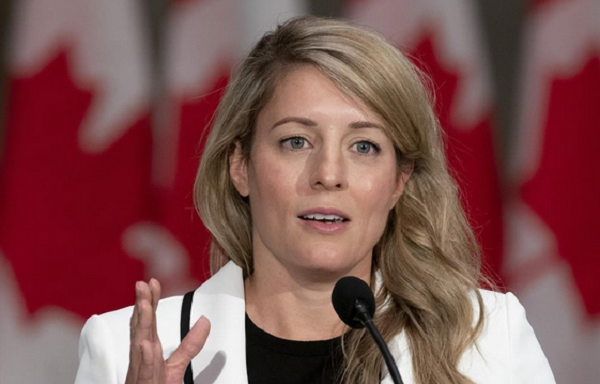Rate of study permit approval for foreign students may prevent Canada from meeting its reduced target
Canada’s processing of new study permits has fallen by half since rules were changed to rein in the number of international students, and the decline is so steep that it may not even meet its reduced 2024 target, according to the latest immigration data.
The free fall is the result of a considerable drop in Indian students’ applications and the rising overall refusal rate for study permits, says an analysis of the first-quarter data from the Immigration Department.
“The Canadian international education landscape has evolved considerably over the past six months,” said the insight report released on Wednesday by ApplyBoard, an online marketplace for learning institutions and international students.
“The data is starting to illustrate the effects of these updated policies.”
Since January, Ottawa made a number of changes to slow the intake of international students, with the aim of reducing the new study permits issued by 28 per cent to 291,914 from last year’s 404,668. To reach that target, immigration officials will have to process a total of 552,095 applications, based on a projected 40 per cent refusal rate.
Study permit processing was temporarily paused for weeks after Immigration Minister Marc Miller imposed the newly required provincial attestation letter in the application as provinces scrambled to develop the infrastructure to issue the documents.
Between January and April, the Immigration Department processed more than 152,000 study permits. Of those, 76,000 were approved. The overall approval rate was 50 per cent, eight percentage points lower than the 2023 average and five percentage points lower than 2022’s average of 55 per cent.
Student demand from 12 of the 17 African source countries rose compared to the same period in 2023, based on submitted study permit volumes. This included students from Ghana and Nigeria, along with applicants from Algeria, Guinea and Cameroon.
However, two-thirds of all international student source countries saw a lower approval rate in 2024 versus full-year 2023. Although Ghanaian and Nigerian students are the second and third largest sources of students so far this year, they have an approval rate of 32 per cent and 16 per cent respectively, down from 44 per cent and 32 per cent the year before.
Although Indian students still accounted for about a third of all study permits processed and 55 per cent of all approvals over the period, ApplyBoard CEO Meti Basiri said March marked a historically low number for permits processed — just over 4,000 — for students from India, where student loans are becoming harder to secure.
“It’s highly unlikely that Canada will hit the cap number unless something is dramatically changed,” Basiri said. “We most likely are going to miss the cap by 10 per cent to 15 per cent.”
According to ApplyBoard’s report, more than 90 per cent of study permits processed for Indian applicants in 2023 were for now-capped study programs, such as college diplomas and university undergraduate degrees. Only students from Nepal and the Philippines had a higher portion. Hence, the temporary cap might have a disproportionate impact on Indian applicants.
Basiri believes the higher overall refusal rate is related to students submitting their applications unaware of the required provincial attestation letters, in addition to the new proof-of-finances requirement that has doubled to $20,000 since January, which made their financial information outdated and ineligible.
So far in 2024, the average study permit processing time has increased steadily from eight weeks a the beginning of the year to 15 weeks in May, which Basiri said is likely due to some students holding off their applications after the rules changed, delaying the processing volumes and leading to a backlog.
Given that some colleges have already started cancelling classes and letting go part-time instructors, Basiri expects a steeper enrolment decline would cause further economic fallout; international students’ annual expenditures, including their visiting families and friends, contributed $30.9 billion or 1.2 per cent to Canada’s GDP in 2022, according to the Immigration Department.
Miller has already indicated he’s looking at changing the rules of the postgraduation work permit, which has been blamed for the country’s runaway international enrolment growth, to better align international students’ education with Canada’s labour market needs.
Basiri said the uncertainty would further delay prospective students’ plan to study here, adding that the full impact on enrolment won’t be felt until the next winter semester since many schools already had a pipeline of applicants for the fall, because college admission and the visa process could take a year to prepare.
“January 2025 could be incredibly concerning for most of the public (post-secondary) institutions in Canada,” Basiri warned.
This article was first reported by The Star












